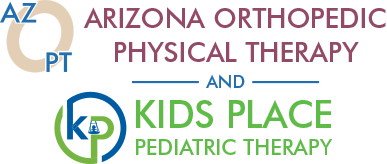Using Indirect Treatment to Overcome Preschool Stuttering
Indirect treatment is an approach that focuses on teaching the family strategies to enhance fluency through environmental modifications. It involves making changes in the environment rather than making any changes in the child’s speech. The message is always that stuttering is okay. Here are some suggestions on how to use indirect treatment with your preschooler.
1. Reduce “Rapid Fire” Questions
-
- Narrate or comment while in play/conversations (ex. “I am going to put the horse in the stable”)
- Provide information about yourself to elicit your child to provide information about himself (ex. “I ate a turkey sandwich for lunch…”)
- Use indirect requests/questions to reduce the pressure (ex. “I wonder …” “I think …, “Let’s see if …”, “Why don’t we try…”)
* Your child will: share information when they are ready, feel less time pressure, and receive a strong language model.
2. Reduce your Speaking Rate
-
- Slow down your rate of speech
- Add Pauses between thoughts or phrases
- Add a pause before responding to your child
* Your child will: understand your better, feel less pressure and less anxious, have more time to plan what they are going to say, slow down their own pace of speech.
3. Follow Your Preschooler’s Lead While They Play
-
- Sit back and watch at first
- Repeat what they are saying to let them know you’re listening
- Comment on what they are doing
* This allows your child to demonstrate how to play at their pace, feel less time pressure, talk about what they are concentrating on in a relaxed way, hear a good language model, and develop play skills, problems-solving skills and improve confidence
4. Follow Child’s Lead in Language Complexity
-
- Pay attention to the length of your child’s sentence
- Pay attention to the structure of sentences
- Use sentences that are similar but add a little length or complexity
* Your child will: have an easier time understanding you, is more likely to use sentences that do not put too much strain on their language system and their fluency.
5. Maintain Eye Contact
-
- Follow the same rules for eye contact as you would any child
* Your child will have a good model for appropriate eye contact, know you are listening and feel less pressure to ‘hold the floor’, and will be less likely to think that stuttering is shameful
6. Respond to Stuttering Moments Carefully
-
- Acknowledge that it happened if they bring it up using simple language (ex. “That word got a little bumpy,” “That word was hard to get out)
- Maintain encouragement and reinforce their desire to communicate. Praise child when they follow through when it’s difficult, when they share stories, etc. (“I’m proud of you for ordering your meal by yourself,” “I am so happy you share that funny story.”)
- Avoid negative words or statements when talking to the child, or others, about the stuttering (ex. “He is having a bad day.”)
* My child will develop vocabulary to talk about stuttering if they want to bring it up, understand that it’s okay to stutter, see strengths in other aspects of their communication (ex, the content), it’s not all about fluency.
7. Reduce Interruptions
-
- Don’t try to guess or fill in words when your child is stuttering. Give them extra time.
- Pause after the child finishes their sentence to ensure they don’t have more to say before you begin talking a turn.
* Your child will feel less time pressure, increase confidence in their ability to communicate, and will not have to correct adult if they guessed incorrectly.
8. Build Confidence
-
- Notice your child’s strengths
- Explain what you noticed (ex. “I noticed you explained the directions to the game to your little brother”)
- Use adjectives to describe their attributes (ex. Smart, kind, creative, thoughtful, etc.)
* Your child will increase resilience, identify that they can be effective and confident communicators whether they continue to stutter or not.
If your concerned that your child isn’t overcoming preschool stuttering, please contact us here at Kids Place Pediatric Therapy. We have 4 speech therapy clinics in Arizona ready to help you and your child!







